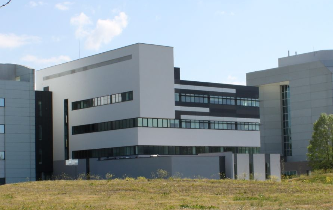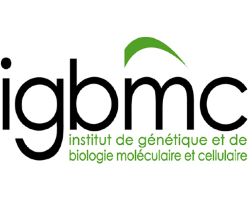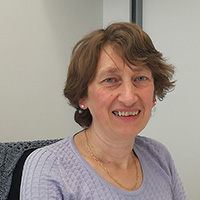

Strasbourg provides an integrated environment for structural studies of protein and complexes from sample preparation to structure determination.
The Strasbourg centre provides a cutting-edge technological environment for integrative structural biology approaches, from the molecular to the cellular level, with an emphasis on protein production linked with preparation of samples for EM and crystallography.
Protein engineering and production are essential tools for structural, biophysical and functional studies as well as for biotechnology and medical applications. The Strasbourg center offers a state-of-the-art infrastructure for the preparation of biomolecules and biomolecular complexes: recombinant expression in E. coli, insect or mammalian cells as well as biomass production.
Strasbourg provides core-technologies for structure determination by crystallography, cryo-EM and tomography. Strasbourg is a centre of expertise for crystallographic analysis of protein-protein and protein-nucleic acid complexes (nano and micro-automated screening and HTP crystal production, data collection and structure determination) and cryo-electron microscopy/tomography (Hight resolution cryo-EM, cryo electron tomography using up to date equipments; two Titan (G4 with Falcon 4 and G1 with K3) and one Glacios with K2).
The centre also offers access to biophysical platform to monitor protein properties and function, including protein stability, protein complex formation, oligomerisation and protein interactions.
The center is also part of the French Infrastructure for Integrated Structural Biology FRISBI which offers access for academic and industrial users at national and european level.
IGBMC is currently available for remote access, as well as physical visits by national and international scientists. For information on the availability of specific technologies, view the Technology Availability List or contact support@instruct-eric.org. Please check here regularly for updates.
How to find us
You will find information on "Travelling to IGBMC" here.
To find advice on "Life in Strasbourg" click here.
The center offers access for three-dimensional structure determination using cryo-electron microscopy (cryo-EM). The centre has expertise in all aspects of single particle analysis from the automated acquisition of large data sets to image analysis.
View All Electron Microscopy at Instruct
The Leica SR GSD microscope allows to perform single-molecule localization microscopy (SMLM) experiments, such as dSTORM, STORM, PALM, or SPT, in standard epifluorescence or TIRF mode. A dichroic image splitter is used for spectral demixing of fluorophore emission in multi-color SMLM. The optional mounting of cylindrical lenses allows for 3D-imaging based on astigmatism, or alternatively, astigmatism can be induced with a MicAO 3DSR adaptive optics system.
The platform also provide access to gene tagging with the CRISPR-Cas9 system for introduction of affinity tags to facilitate the purification of endogenous complexes or for tagging proteins with fluorescent reporters in view of imaging and functional proteomics applications, in the frame of a partnership with the TacGene platform from the Museum d’Histoire Naturelle (Paris, France),
Liquid state NMR
NMR spectroscopy provides invaluable insights into the structural and dynamical features of biomolecular systems. We are taking advantage of NMR, combined with other structural biology methods, to investigate molecular properties that are important to achieve a given biological function.
Two spectrometers are installed in the lab: a 600 MHz and a 700 MHz with cryo-probes to achieve highest sensitivity.
600 MHz spectrometer: For experiments that need high sensitivity and resolution, the 600 MHz spectrometer with a QCI-F CryoProbeTM achieves high sensitivity on 13C, 1H,and 19F with 15N and 2H decoupling and Z gradients.
700 MHz spectrometer: For experiments that need extreme sensitivity and resolution, the 700 MHZ spectrometer with a selective proton and carbon CryoProbeTM with nitrogen/carbon/deuterium decoupling and Z gradients.
The high throughput crystallisation platform offers vapour diffusion as well as crystallisation under oil screening and optimisation in sitting drops. Flexible methods have been developed to adapt each step to individual project requirements. At the crystallisation level, we have especially focused on developing techniques to optimise crystal growth.
Instruct Centre-FR1 offers state-of-the-art equipment and expertise to perform biophysical analysis and quality control on protein samples. Techniques include Analytical ultracentrifugation (AUC), Isothermal titration calorimetry (ITC), Microscale Thermophoresis, SEC-MALS, Thermal Shift assay and Mass Photometry (MP).
Sample preparation is not only a key issue for structural and molecular biology studies, but concerns life sciences development as a whole. Instruct centre France 1 offers state-of-the-art infrastructures for the expression and production of biomolecules and their complexes. The center proposes recombinant expression of protein and multi-protein complexes in prokaryotic and eukaryotic hosts as well as biomass production for isolation of poorly abundant proteins and endogenous complexes.
The centre provides access to the last generation equipment for sample vitrification for electon microscopy, the CHAMELEON system.

